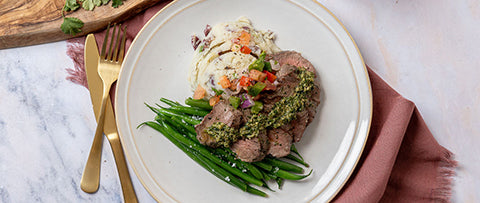The American Heart Association recommends restricting daily sodium consumption to a max of 2,300 milligrams, unless regularly engaging in physical activity and sweating significantly. However, if high blood pressure is already of concern, limiting sodium intake to no more than 1,500 milligrams is advised. Taking proactive steps like eating whole natural foods and limiting processed foods will naturally lower the sodium intake per day which can aid in controlling blood pressure and also serve as a preventive measure. Exploring our selection of low-sodium meals provides tasty alternatives that align with your health goals.
- Consuming three meals a day with a total sodium content of 2300 mg amounts to 766 mg per meal.
- For individuals already dealing with high blood pressure, a stricter guideline suggests aiming for 1,500 milligrams of sodium per day. Opting for a lower sodium goal of 1500 mg per day translates to 500 mg per meal.
Sodium is a vital mineral that plays a crucial role in maintaining various physiological functions within the human body. However, its association with health concerns, particularly high blood pressure, has led to a negative reputation. Sodium is an essential electrolyte that helps regulate fluid balance, support nerve function, and aid in muscle contractions. It is found naturally in many foods like sweet potatoes and broccoli, and the body requires a certain amount to function optimally.
Despite its importance, excessive sodium intake has been linked to health issues, with high blood pressure being a primary concern. The current Western diet of processed and packaged foods tends to be high in sodium, contributing to the widespread health concerns. Excessive sodium intake can lead to water retention, increased blood volume, and elevated blood pressure, putting individuals at a higher risk of cardiovascular issues.
For those with certain health conditions, such as hypertension or kidney problems, reducing sodium intake is often recommended. However, it's essential to strike a balance, as overly restrictive sodium consumption can have negative effects, especially for those engaged in physical activities or living in hot climates where sodium loss through sweating is significant. Opting for a well-balanced diet that includes fresh fruits, vegetables, and whole foods while minimizing the consumption of highly processed and salt-laden products is the best way to go.
All sodium in our items is either naturally occurring or from house-made seasoning and sauces. We do not use sodium as a preservative. For more information on how much sodium you should consume daily, check out our blog: Fight High Blood Pressure with a Healthy Diet.
Check with your doctor or registered dietitian before starting any diets.
Here is a list of all of our current offerings and their sodium counts, from lowest to highest:
| MEAL | SODIUM |
| Bulk Herb Chicken | 85 mg |
| Raspberry Cheesecake | 90 mg |
| Cinnamon Roll Blondie (2 Pack) | 100 mg |
| Cinnamon Roll Blondie (6 Pack) | 100 mg |
| Bulk Mediterranean Pasta | 100 mg |
| PB Cookie Dough Protein Bars | 105 mg |
| Bulk Italian Breaded Chicken | 120 mg |
| Chocolate Chip Muffins (2 Pack) | 130 mg |
| Chocolate Chip Muffins (6 Pack) | 130 mg |
| Bulk Green Beans | 130 mg |
| Bulk Sweet Potatoes | 140 mg |
| PB Bliss Bars | 160 mg |
| Muscle Maker | 190 mg |
| Grilled Salmon & Garlic Mashed Potatoes | 270 mg |
| Waffles & Maple Turkey Sausage | 290 mg |
| Bulk Buffalo Turkey Burgers | 300 mg |
| Smothered Philly Bowl | 320 mg |
| Turkey, Eggs, & Potatoes | 330 mg |
| Firecracker Shrimp | 330 mg |
| Potato & Egg White Scramble | 360 mg |
| Pesto Turkey Meatballs & Mediterranean Pasta | 360 mg |
| Chicken, Zucchini, & Rice | 370 mg |
| Bulk Buffalo Chicken | 370 mg |
| Breakfast Sampler | 400 mg |
| Bulk Sweet & Salty Turkey Burgers | 400 mg |
| Turkey Bolognese | 410 mg |
| Hot Honey Breakfast Scramble | 420 mg |
| Lemon Dill Salmon | 450 mg |
| Asian Turkey Burger | 480 mg |
| Taco Stuffed Pepper | 490 mg |
| Ranch Chicken & Buffalo Cauliflower | 490 mg |
| Firecracker Chicken | 500 mg |





